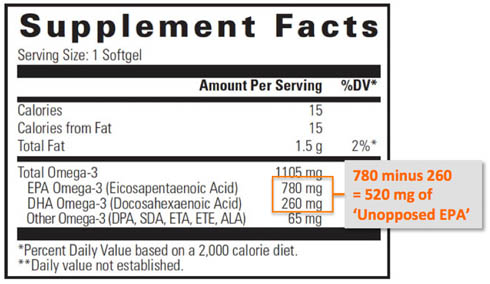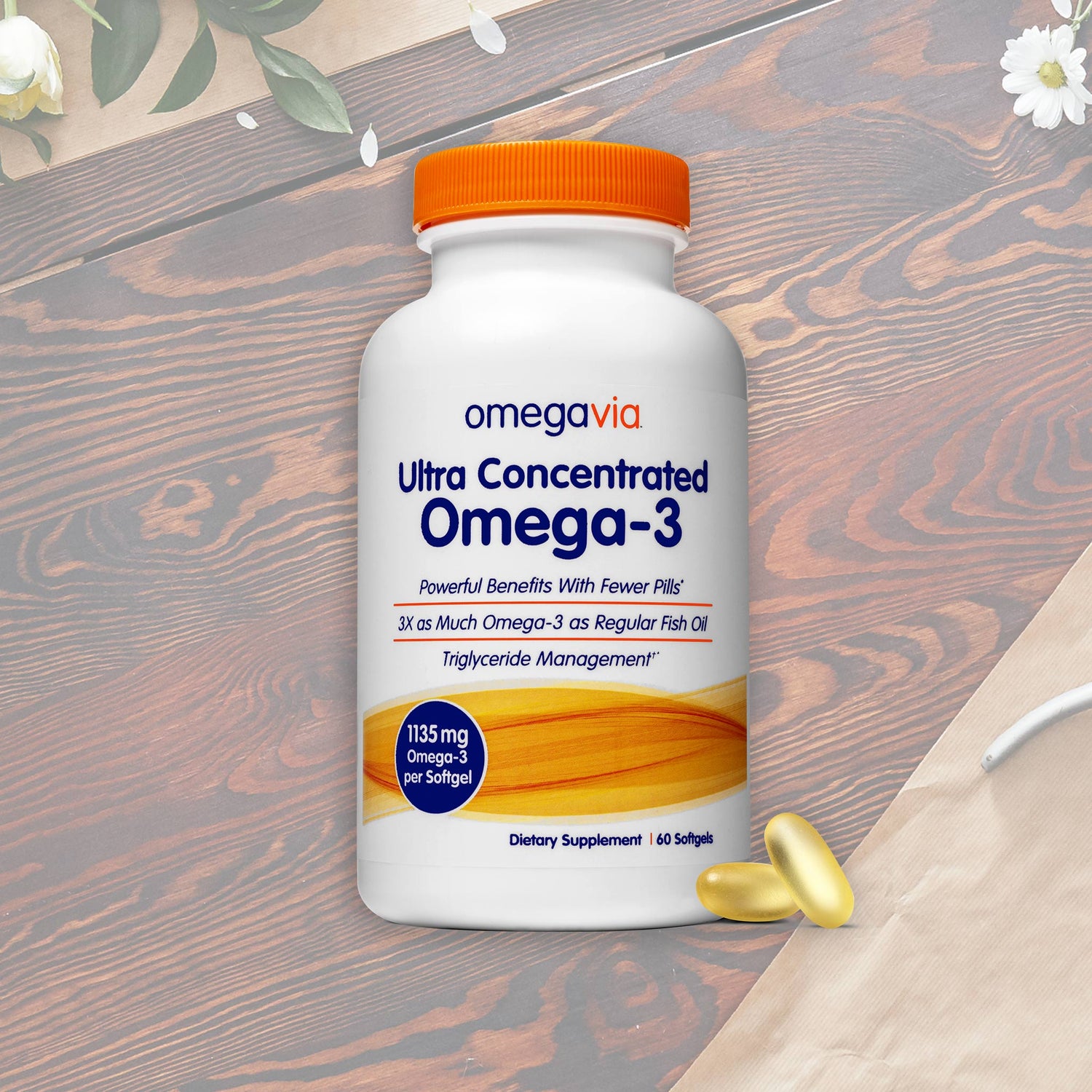I want to elaborate on a couple of topics not previously addressed:
- If the brain is so full of DHA, then why does EPA (and not DHA) help with mood*?
- The concept of 'Unopposed EPA'
The best summary of the state of the science was published by Dr. Sublette of Columbia University Medical Center. She also has a website called MoodStudies.org.
Dr. Sublette found that mood was significantly improved when a fish oil formula had 60% or more EPA.*
*Individual results will vary. These statements have not been evaluated by the Food and Drug Administration. This product is not intended to diagnose, treat, cure, or prevent any disease. Research suggests that improving omega-3 fat intake from a concentrated source may help support a healthy mood. Some, but not all studies, indicate that 2,000 mg of omega-3 fats daily with a higher concentration of EPA may offer benefit.
If the fish oil contained equal parts EPA and DHA or mostly DHA, there was no improvement.
Actually, DHA is contraindicated for mood per this publication.
But this flies in the face of two facts:
- DHA is the major component of the brain - there is hardly any EPA in the brain
- People with poor mood health have less DHA in their brain
So...what gives?
We don't have all the answers yet, but here are a few possible reasons:
-
Mood may not be just brain-related*
- We think of mood as being exclusively brain-related. I've argued that mood health is partly gut-and-diet related. If you eat crap (sugar, wheat & vegetable oils), then your gut may become leaky and, well, moody.
- The concept of the gut-brain axis is still fairly new to western medicine. Progress is slow. Our grandchildren will hear a lot more about it than we do. Listen to Chris Kresser talk about it on his podcast.
- Makes you rethink the term 'gut feeling,' doesn't it?
-
EPA possibly enters brain and improves function*
- Just because there is very little EPA in the brain does not mean it is not absorbed and/or rapidly used up (rapid turnover.)
- We know this happens in mice. No proof yet if it happens in people - wanna volunteer?
- EPA supplementation increases N-acetyl aspartate, a marker of nerve health and phospholipid turnover.*
- EPA supplementation supports brain health*
-
EPA indirectly increases DHA levels in the brain
- EPA is a precursor to DHA.
- EPA could increase production of DHA but the evidence here is weak.
-
Mood health is likely a symptom of other conditions*
- This may be the most important of the four points...mood health may simply be a symptom of poor inflammation response.
- We already talked about EPA and its preventive role in supporting health inflammation response*.
- Read 'Cytokines sing the blues' by Raison et al., 2006. .
But there's more!
- Ratios of Omega-6 to 3 are increased in the people with poor mood health (never hurts to flog that dead horse!)
- Our bodies make serotonin (the happy chemical) from tryptophan. But if you're unwell, your body will convert tryptophan into agitation-causing molecules (kynurenic and xanthurenic acid.) Groovy diagram explains this.
OK, but why does excess DHA not help?
The Sublette paper suggests it could be due to EPA and DHA competing for some unknown binding site where EPA in excess helps and DHA in excess hurts. And Maes et al., says it could be because DHA induces a Th-1-like immune response, which makes DHA contraindicated for mood health. (I'd love to explain that but it's above my pay grade. :-) And I like being awake. Thanks for asking.)
What is Unopposed EPA?
The concept of unopposed EPA comes from the understanding that fish oil formulas that contained 60% or more EPA support mood health*.
The higher the percent of EPA in the formula, the more likely it was to help.
So if your fish oil supplement contains 500 mg total Omega-3, of which 300 mg is EPA and 200 mg is DHA, then the unopposed EPA = mg EPA minus mg DHA. 300 - 200 = 100 mg of unopposed EPA.
[caption id="attachment_9217" align="alignleft" width="576"] OmegaVia supplement facts panel: mg EPA minus mg DHA = Unopposed EPA.[/caption]
OmegaVia supplement facts panel: mg EPA minus mg DHA = Unopposed EPA.[/caption]
More is not better. Again.
Don't gulp down 20 fish oil pills after reading all this.
Turns out, there is a sweet spot: between 1000 mg and 2200 mg of unopposed EPA per day. One study noticed benefits with just 200 mg of unopposed EPA per day.
Too much unopposed EPA, and no benefit.
Poor mood health can have many causes. Taking EPA may not have much effect if your mood health is driven by factors unrelated to Omega-3, such as emotional/psychological factors.
*Individual results will vary. Nutritional therapy may only help support positive mood if poor nutrition (and associated deficiencies) was a preexisting condition. These statements have not been evaluated by the Food and Drug Administration. This product is not intended to diagnose, treat, cure, or prevent any disease. Research suggests that improving omega-3 fat intake from a concentrated source may help support a healthy mood. Some, but not all studies, indicate that 2,000 mg of omega-3 fats daily with a higher concentration of EPA may offer benefit.



